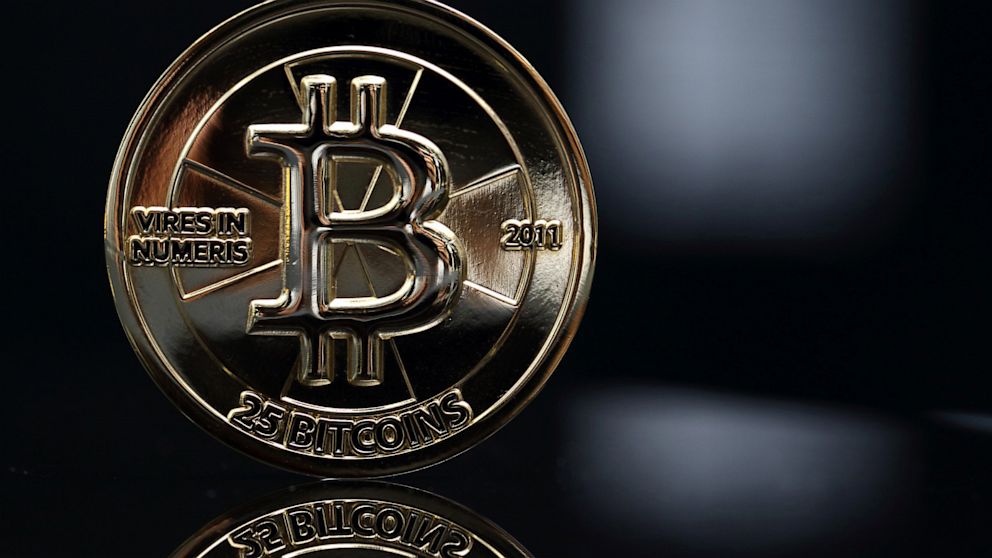
Mount Gox was once one of the biggest bitcoin exchanges, now they are filing for bankrupcy protection after losing nearly half a billion dollars in bitcoins to a hack attack. Based in Tokyo, Japan, Mount Gox exchanged bitcoins for currencys around the world including the US dollar.
Bitcoins are an interesting and confusing thing. They are form of online currency that you keep in a virtual "wallet". This "wallet" takes the form of an account that is made on a secure third party website. Bitcoins are more like stock than actual currency. The value of the bitcoin fluctuates like a roller coaster, it can reach as high as $1,242 (like late last November), or as low as $109 (like early October). Right now a single bitcoin is valued at $618.30. You can obtain bitcoins through a complex encrypted computer program. You must solve a complicated math problem to release new coins to the market. To mine bitcoins hue amounts of computing power is required.
Bitcoins are not regulated by any central authority like the Federal Reserve, so any transactions made on the online marketplace are untraceable to the idividual. Due to the fact that the bitcoin is an untraceable currency it can be used to make illegal purchases. The Silkroad marketplace was an anonymous hidden online marketplace where illegal items could be purchased with bitcoin. Things as ridiculous as "Cocaine Energy Drink" could have been bought, until they were shut down by the FBI in early October of last year. You cannot use bitcoins on any store, only some stores will take bitcoins as currency. While they are untraceable to a certain person, there is an underlying software code called "the protocol" that keeps track of every transaction using a special marker on each bitcoin.
This link gives a pretty good explanation as to what bitcoins are, far better than I could at least.
http://abcnews.go.com/Technology/bitcoins-virtual-currency-explained-idiot/story?id=20926230
One major flaw of bitcoins is that if the server is as faulty as Mount Gox was they can be easily stolen by any experienced hacker. In addition, there are several countries that have decided to take action in regards to the virtual currency. Japan's government wants more regulation amid all of the hacking attacks on exchanges like Mount Gox, and they want to classify the bitcoin as a commodity. Russia has decided that anyone that uses bitcoins deserves to be on the "suspicious list". In the US, the IRS has not made bitcoins taxable, but it may soon with their growing popularity.
So what do you guys think about this whole bitcoin business? Its all kind of a confusing thing. Do you think that the US should take action against the bitcoins? Do you think that there should be some form of regulation seeing how dangerous this form of virtual currency can be? How do you think this will effect the dollar, and other physical currencies?
Heres some links
http://online.wsj.com/news/articles/SB10001424052702303801304579410010379087576
http://www.reuters.com/article/2014/03/07/us-bitcoin-mtgox-japan-idUSBREA2601Z20140307
http://english.cntv.cn/program/newsupdate/20140301/104182.shtml
http://www.nolo.com/legal-encyclopedia/bitcoins-tax-liability.html
3 comments:
Since cryptocurrency is still in its infancy, I think that any attempt to regulate it will be somewhat futile. Many aspects of the market are constantly changing, so what might be a smart regulation on Monday could become completely irrelevant on Wednesday. And it's not just Bitcoin that would need to be regulated, but the hundreds of other cryptocurrencies too (many of them with different specifications). It's unrealistic to believe that there is a practical way to regulate all of these variations efficiently. For now I don't think we have much to worry about: Bitcoin's market cap is ~$8 billion. That's not an insignificant number; but looking at the big picture, I can't imagine that it could have much of an effect on the overall health of the economy. Not yet at least, maybe someday it will.
I think the main issue with bitcoin at this point is its total lack of regulation. Theoretically, bitcoin is a really neat idea; cryptography makes each individual "coin" unique, thus creating a form of virtual token that can be traded somewhat like cash. But where the model seems to break down is through bitcoin "mining." If the only obstacle to the creation of bitcoin is CPU capacity, then the currency is inherently unsustainable. Internet tokens by themselves are not inherently valuable so the creation of more adds no value to the system (outside of electrical cost and the one time cost of the computer) and should just inflate and devalue the currency. A currency that is not essentially linked to a product with intrinsic value (ie. gold, silver, or other goods) requires regulation to keep its value somewhat stable. In this category bitcoin clearly fails, as evidenced by huge fluctuation in value.
Additionally, an untraceable internet currency has more practical issues. Bitcoin provides organized criminals and gangs a way to conduct illegal transactions without the possibility of government intervention. There is no legitimate right to anonymity in commerce and granting such anonymity undermines efforts to combat fraud, drug smuggling, and other illegal activity. To be completely honest, I think that the exchange of bitcoin is at best risky and at worst irresponsible and legally dubious.
“Futility” is a pretty interesting concept. I’ve linked a pretty appropriate article
that I read a few months back.
http://www.bbc.com/news/uk-wales-south-east-wales-25134289
The man enjoys some comical misfortune (read the article, the pun is most certainly intended).
Matt brings up a solid point about its fluctuating value. The currency’s value is far too variable. We also recently saw Coinye and Dogecoin join the market (both practically worthless). Furthermore, the lack of central oversight and the anonymity makes it much easier to commit crimes and oversee illegal transactions. In general, I’m personally skeptical about online transactions, but I understand the allure that bitcoin presents. Still, it was a bit of a head-scratcher for me to initially understand the concept of the cryptocurrency. And thus, I frankly don’t think the world is ready for bitcoin yet.
Post a Comment